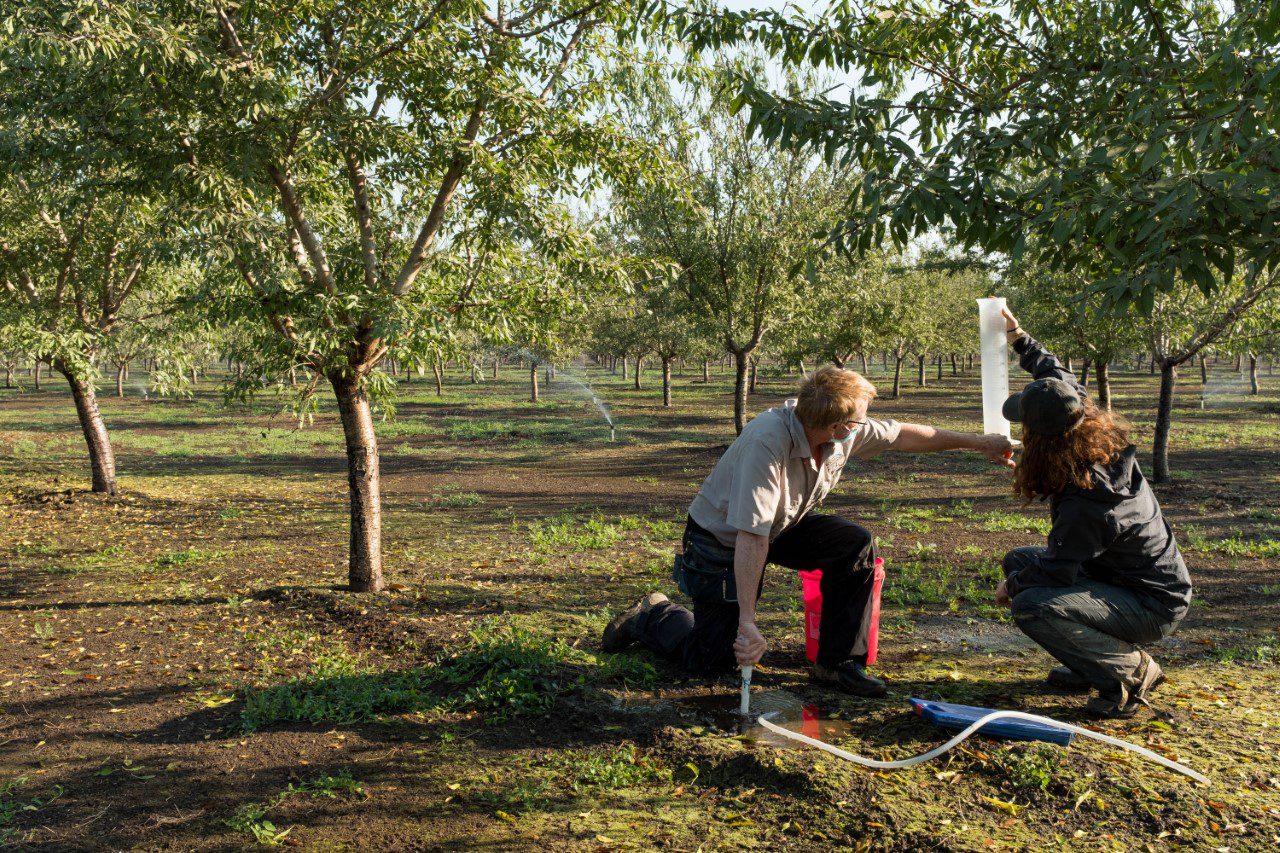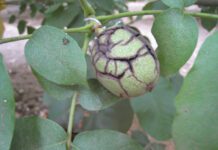
Evaluation of an orchard irrigation system to make sure it is doing what it is designed to do is a good way to begin the growing season. There are mobile irrigation laboratories that have the capability of evaluating the status of irrigation systems and diagnosing problems.
Mobile labs, operated in resource conservation districts, can perform evaluations, particularly noting if the pressure and flow are correct for the system and if maintenance is needed.
Kevin Greer with the Tehama County Resource Conservation District operates a mobile irrigation lab that is currently serving most of the northern Sacramento Valley. Greer said the mobile lab typically operates from March through October. Greer said scheduling takes two to three weeks and the evaluation takes one to three hours depending on the size and design of the system.
“This is a good time of the year to evaluate your system. They last longer with better maintenance,” Greer said.
Not fully understanding the way the system was designed to perform is a common issue with growers, he said. Small changes in ground water levels, environmental conditions or pump pressure can change the way a system performs. He advised checking to see what the system was designed to do and make sure it is putting out the right amounts of water and that distribution across the orchard is uniform.
The mobile irrigation lab tests the flow meter at the pump. It also tests the pressure gauges before and after the filter, noting how much pressure is in the system. The evaluation can also detect leaks in the system which will affect performance.
Greer said additional mobile irrigation labs offering diagnostic services are possible due to a new CDFA grant program announced last year. The application period for the grant program closed in February and the program will be implemented in June.
The Water Efficiency Technical Assistance program will provide on-farm one-on-one technical assistance to farmers to evaluate irrigation system efficiency via mobile irrigation lab and provide diagnostics, reports and recommendations to growers. The program will also include training regarding water use efficiency and nutrient management practices and technology.

Cecilia Parsons
Cecilia Parsons has lived in the Central Valley community of Ducor since 1976, covering agriculture for numerous agricultural publications over the years. She has found and nurtured many wonderful and helpful contacts in the ag community, including the UCCE advisors, allowing for news coverage that focuses on the basics of food production.
She is always on the search for new ag topics that can help growers and processors in the San Joaquin Valley improve their bottom line.
In her free time, Cecilia rides her horse, Holly in ranch versatility shows and raises registered Shetland sheep which she exhibits at county and state fairs during the summer.















